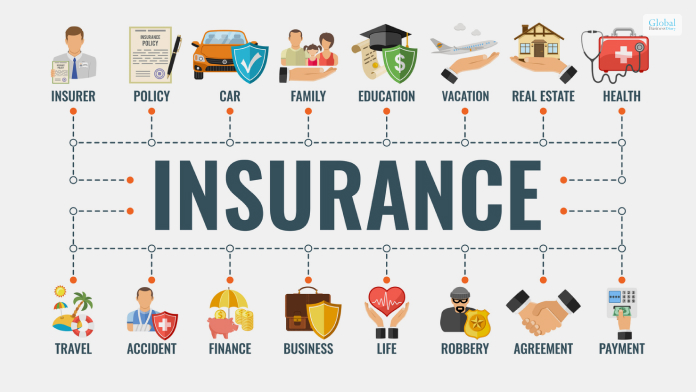The Types Of Business Insurance Needed For Every Business

It is important for every business to get insurance for itself. Hence, there are many types of insurance that a particular business owner can get. These insurances help the company or the organization from a variety of risks that it might come across during normal conditions. Since choosing the right business insurance can be a bit difficult, hence you must know about the types of business insurance.
In this article, we will discuss what commercial insurance or business insurance means. However, the primary focus of the article will be on the major types of business insurance that a company must have for its business. Hence, to learn more about commercial insurance read on through to the end of the article.
What Is A Commercial Insurance?

Commercial Business Insurance is insurance for a company or an enterprise that allows it to protect the financial assets of the company. Any commercial insurance for your company will help you to protect the company from different risks.
According to Business News Daily,
“Business insurance is a form of risk management used to protect you and your company from financial loss in the event of an accident or crisis.”
When it comes to property damage or liability claims, it is important for a business to apply for insurance since it will help the business to cover the costs that the business incurred during the damage.
If your business does not have insurance, then as an owner, you will have to take the risk of paying for the business out of your pocket if there are some costly damages or legal claims against your company.
Types Of Business Insurance Policies

According to Investopedia,
“Companies evaluate their commercial insurance needs based on potential risks, which can vary depending on the type of business and its environment. Learn about the types of business insurance and what they provide.”
There are many types of business insurance coverage for your company. Here are the major ones that shall be important for you:
1. Commercial General Liability Insurance

This is the most common type of insurance for a company. This is the type of policy that is helpful for all kinds of businesses. It is the most comprehensive form of business, although it also does not protect against all kinds of risks. This can also be the best example of startup business insurance.

These types of insurance coverage include – physical injury to someone else, personal injury like libel or slander, or property damage to the belongings of another person, and more.
2. Commercial Property Insurance

When the protection is about the business you own, your rented building, or the business equipment that is essential to run your business, then it is called commercial property insurance. However, you will need to be aware that these types of insurance do not cover damages related to natural conditions like floods and earthquakes.
In the latter cases, you will have to buy a separate insurance policy for your business, such as commercial flood insurance or similar ones. And these will protect your business in such situations.
3. Professional Liability Insurance

According to the reports of Investopedia,
“Unlike general liability insurance, which is for any business, professional liability insurance (PLI) is designed for businesses that provide services. Coverage is for loss caused by the service provided.”
When it comes to malpractice, errors, or negligence from the professionals of the business, then professional liability insurance comes into play. This insurance is also known as errors and omissions insurance or simply E&O.
4. Business Income Insurance

There might be some cases when you will not be able to run your business despite the coverage of your property insurance. In such cases, business income insurance will help you replace the lost income from the damage.
The events that cause normal disruptions to the processes of a business, business income insurance helps cover the lost income. This one actually complements the coverage of property damage insurance.
5. Workers’ Compensation Insurance

If one of your employees, or some (hopefully not), gets hurt or sick from their job, then the workers’ compensation insurance comes into play. The benefits that you get through these types of insurances help you to pay for the medical bills, replace the lost wages, cover funeral costs in case of loss of life, and pay for ongoing care, etc.
Most of the states in the United States require your business to carry workers’ compensation insurance. In such cases, you will need to comply fully with the law to avoid fines and penalties.
6. Data Breach Insurance

These are also called cyber insurances. According to TheHartford.com,
“To protect against those risks, many businesses add cyber insurance to their business insurance policies. Cyber insurance can offer broad coverages to help protect businesses from various technology-related risks.”
These types of insurance provide enough protection to small business owners.
7. Commercial Auto Insurance

These insurances help you to cover the damages of the company-owned vehicles. These help to protect you and your employees on the road. The cover includes property damage as well as bodily injury claims. This is essential because a personal car insurance policy does not help in the case of third-party claims.
8. Commercial Umbrella Insurance

If the claims of your business exceed the limit of the business policy, commercial umbrella insurance helps in these cases. It extends the limit of coverage of some of the liability policies related to your business, for example, the ones you have with general liability insurance and commercial auto insurance.
Summing Up
Hope this article was helpful for you to get a better idea of the best types of business insurance for your company or enterprise. Our advice would be to get all these insurances for your company in order, as per the financial status of your company. What do you think about the types of insurance mentioned in this article? Share your thoughts with us about the topic in the comments section below.
Read Also:













